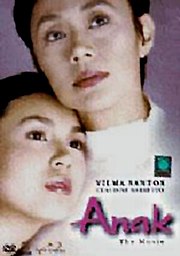(a short impression)

Throughout the whole novel, I can see that Animal Farm symbolizes the
The writing of Animal Farm is very fluent and beautiful. George Orwell arranges the events in the story almost as in real history. Therefore, I could follow the flow of the story well and imagine the setting. He described everything vividly, so that I could even believe in everything in the novel that seems impossible. For example, when it is said that Snowball fights Jones so bravely, the readers will easily believe it, while it is almost impossible for a pig to even think like those in the Animal Farm. The words used in the novel are rather simple and understandable, unlike what Fitzgerald used in his novel, The Great Gatsby. Still, there are some political terms that are used to emphasize the context and satirical meaning.
It is said in the introduction that the novel can be categorized as a fairy tale because of the tragedy it contains. The tragedy is that the dream of communism and equalitarianism among the animals never comes true. While reading, I became very angry with Napoleon and his ‘men’, and at the same time support the efforts of Snowball. I was hoping that Snowball would come back to power or the suffering animals would come up with a rebellion so that they can take over the power and live happily in Animal Farm, as Old Major had dreamed. However, the story ends without any explanation about the end of the Animal Farm. But, I can conclude that it ends terribly: the animals suffer under the dictatorship of Napoleon, which is eventually not different from human beings.
The idea of Communism is in fact a great and perfect idea for the best society, because it is based on the sharing of everything. There are no personal belongings. If we look back to the history of the Church, the early Church actually practiced this way of life. All the believers were together and had everything in common. Their possessions and goods, they gave to anyone as he had need. (Act 1:44-45). They were happy with this way of life. I think this kind of farm (society) is what the Old Major dreams about. Everyone works, eats, shares in the same proportion. No one steals, no one corrupts, no one is jealous of each other. In Animal Farm, however, because of lust and greed in some people, this idea becomes a boomerang for them. The failure of the idea of communism is on the human factor (or in the novel, animal factor). The idea itself is flawless, but those who are trusted to carry out this idea are so selfish and lustful. After gaining some power, they want more and more. First, they want freedom from Jones, and they get it. Even in the early days after the revolution, this lust is already obvious through the loss of the milk. Then, Snowball and Napoleon began to spread their influence toward the animals to gain some more power. Napoleon grabs the ‘education’ of some young puppies so that his power is supported also by the physical strength of his personal bodyguards. It continues until eventually the pigs become undistinguished from human beings.

